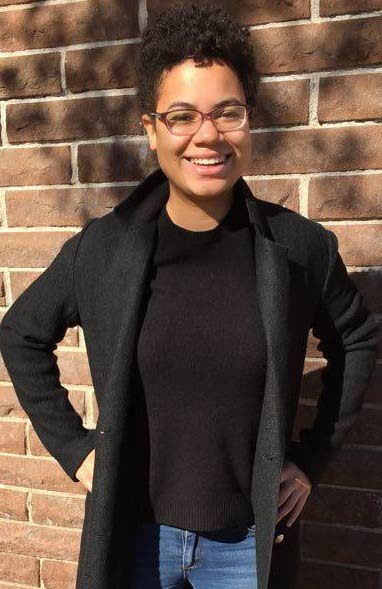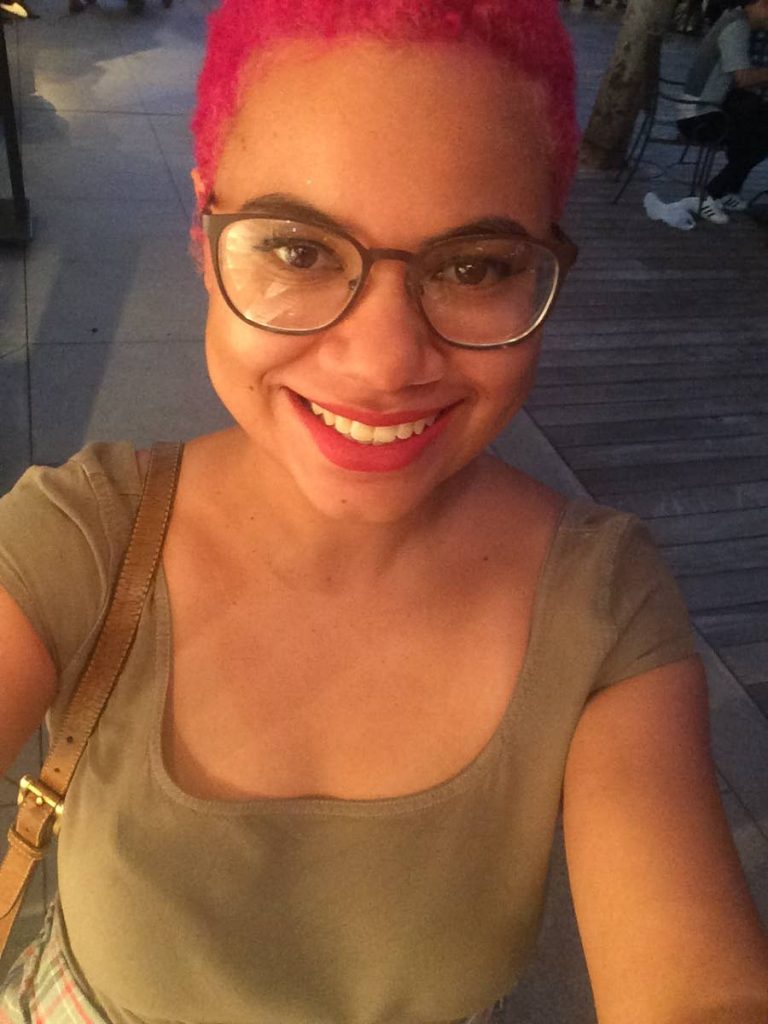Writer explores loss of Caribbean identity

“Why was post-racial nationhood held up as an ideal? Why was it deemed necessary for us to disconnect ourselves from our respective motherlands to move past colonialism? Why do some people prefer to see ourselves as raceless? How is this any different from what happens in the USA, where immigrants are forced to assimilate, to drop their cultures, accents, defining factors, individual struggles, and accept the American Dream?
These are some of the questions explored in writer Amanda Choo Quan’s It Starts with a Shatter, an extract from her work-in-progress An Emotional History of the West Indies. The essay recently won the 2020 Johnson and Amoy Achong Caribbean Writers Prize, dedicated to advancing new Caribbean voices.
The prize is awarded at the Bocas Literary Festival. The 2020 prize was for non-fiction writing and the 2019 prize for fiction. This is the second year of the prize, which allows an emerging Caribbean writer living and working in the Anglophone Caribbean to devote time to advancing or finishing a literary work, with mentorship from an established writer. The other finalists were two other TT writers, Melissa Doughty and Amílcar Sanatan.
The project tries to explore the source of Caribbean identity through third-person memoir and personal essays. Chief judge professor emeritus Funso Aiyejina said the submission excelled “because of the eloquence of the writing, the honesty of the emotions, the concreteness of the imagery, the transformative energy of the story, and the writer’s ability to weave the personal and the political, the ‘there’ and the ‘here’, and the ‘then’ and the ‘now’ into a seamless story.”
Choo Quan said It Starts With a Shatter talks about the origins of nationhood and how nations, including TT and the United States, are constructed.
“Nations are made of people moved by historical forces, but they are essentially made of people. I was interested in finding out about how people and nations, are emotionally and psychologically affected by history, by slavery, by colonialism. I was interested in investigating stereotypes and tropes that we use to describe ourselves as Trinidadians, that I have heard over time: things like, "Trinidadians are lazy" or "Trinidadians do not work as hard as Americans" or "Trinidad and Tobago has no respect for its own culture." I was also interested in interrogating Trinidadianness, if there is such a thing, through the eyes of one of its creators, Eric Williams. I have always been fascinated by the "no Mother India, no Mother Africa" comments and certain forces at play in TT that would have us invest in the "rainbowness" of our nation.”

Choo Quan said she was inspired to write the book after returning to Trinidad from university in the US in 2018 and reflecting on her experiences there. She said she came back with the intention of finding the source of Trinidadian intellectualism, the source of where and how people began to think of themselves as Caribbean and Trinidadian people.
The 31-year-old author said she was interested in the Beacon Group, which produced writers like CLR James in the period before and during independence.
“In editorials, you see people grappling with the questions of who we are, what is our identity, what makes a Trinidadian or a Caribbean person? I wanted to define that for myself and I started to wonder if there were feelings and emotions we could think of as Caribbean as well, this sense of pride we have, this sense of insecurity that we have, this sense of confusion over who we are, how these feelings impact our daily life and work.”
She said the essay also explores her experiences living in LA as a writer and how she was able to find pride in the legacy of Caribbean writers that had come before her, understanding that there are certain aspects or characteristics of writing that are things to be proud of.
"Having gone to school in the US and seen how confident my colleagues were because they belonged to a country seen as powerful, I wanted to express, particularly in the realm of literature, what accounted for the difference in style, in language, in local storytelling and the way we speak about ourselves. There was a political passion in our storytelling that my colleagues in the US weren't writing with and I realised that writing with that passion was particularly Trinidadian, which really informed my writing. There were times when I wondered if it was the style of writing that would be accepted in a US publication and then eventually I realised it didn't matter, once your writing is good enough, it will be accepted everywhere. There is worth to be found in the way we write and the way we tell stories even while we live overseas and commune with people from different cultures."
Choo Quan said the style of the book is one which has been previously used by Caribbean writers but she wanted to do it in a modern way, “in the realm of pop culture, of what it’s like to be among Americans and trying to relate to other people while also being proud of your own identity.”
Choo Quan said she has been writing since she was a child. Born to a Trinidadian father and a Jamaican mother, she grew up in Maraval and attended St Joseph's Convent, Port of Spain. While studying communications and literature at the UWI Mona campus, she realised she had a passion for writing. She did a workshop in Texas where she learned that creative writing is regarded as a career and people studied how to do it.
Working with Write Club, a writing club in Trinidad, taught her writing required discipline and the support of other writers to get things done. She took any writing opportunities and workshops that came up, with assistance from her workplace. She then did a three-year masters in fine arts at the California University of the Arts in Los Angeles.
Her work has been published in Callaloo: A Journal of African Diaspora Arts and Letters and Entropy Magazine. She has read excerpts of her work at literary festivals in LA, verging towards performance art in her reading, much like spoken word artistes. The author enjoys reading black revolutionary authors from TT and the US such as James Baldwin, CLR James, George Saunders and Tressie McMillian Cottom, as she is interested in exploring privilege, race and class. Other authors she reads include science fiction and fantasy writer NK Jemisin, and multi-genre writers Maggie Nelson and Anne Carson.
Choo Quan, who works in communications at the UN High Commission for Refugees, said she wants others to know it’s possible to make a career out of writing in Trinidad. She is working on a project to provide other Caribbean authors with access to resources, whether editors or agents or opportunities for learning.
“I’m devoted to that process because I feel it’s extremely important for writers who achieve success to pay it back to their community.”

Comments
"Writer explores loss of Caribbean identity"